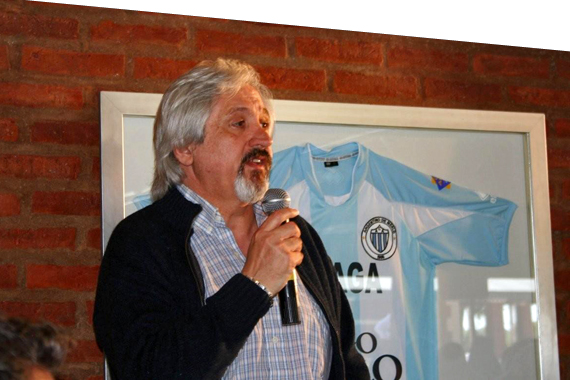|
Flourmills are linked to the poultry industry through the production of feeds
used to raise chickens. Rubén Lafuente, general secretary of the Argentinean
Mill Workers' Trade Union (UOMA), spoke with SIREL and outlined his view of the
challenges faced by the mill sector and some unique characteristics of the role
the sector plays in the meat production chain.
-What can
you tell us about UOMA?
-The bulk
of mill activities is concentrated in the province of Entre Ríos, with some
22 companies operating there and a workforce of 700. As an organization, we
are involved in meat production, and therefore we believe that we should
participate in this Mercosur coordinating body, which will benefit us all.
-What are
the main issues that need to be addressed?
-To begin
with we must, of course, discuss working conditions, wages, and the age of
retirement, but also the issue of how inputs and vitamin complexes used in
poultry raising are manufactured, and what chemical pesticides are sprayed
on the raw materials used to make these feeds.
There are a
lot of issues in which we must work together, especially with respect to
workers' health. We can talk of better salaries and greater benefits, but
health is paramount, because after we produce these feeds, there are other
people down the line handling and slaughtering animals that are intended for
human consumption, and it is essential that they do so under proper health
conditions.
-How are
these animal feeds produced?
-The animal
feeds are prepared with soybean and corn, both of which are genetically
modified grains and are sprayed with agro-toxic substances, in many cases
harmful for human health.
Some of these chemicals, like
glyphosate, are sprayed over the crops in the fields, and others are sprayed
in the silos to protect grains from insects and rodents.
These
practices need to be analyzed and considered carefully, and the coordinating
body must deal with this issue, because the handling of these grains, which
are later made into feed for animals that are slaughtered downstream in the
chain of production, could affect workers' health.
We even need to discuss what we can do to prevent harmful products from
reaching consumers.
|
Feed grains
receive chemicals at three different stages: in the fields, when
they are sprayed with glyphosate; in the silos, to preserve them;
and in the factories that produce feed for animal fattening. |
-In your
presentation at the Conference's plenary meeting you mentioned the use of a
“vitamin complex.” What were you referring to?
-As with other
additives, a vitamin complex is added to the feed in order to reduce the time
necessary to fatten animals and thus yield greater profits. In the case of
chickens, Evo Morales was right when he said that the consumption of
hormone-ridden poultry was causing health problems.
-But everyone
laughed at Morales when he said that…
-They may have
laughed, but it all depends on how you look at things, because the truth is that
these things are real. Take the case of chickens. It used to take 70 days to
fatten them enough for slaughtering. Now it only takes 40 to 42 days. And that's
not the result of better quality or more balanced feeds; it has to do with the
additives that are put into the feeds.
What Evo
Morales said -at least in this aspect- is not a laughing matter, because
these chemicals could end up being unknowingly consumed by human beings through
the food they eat.
Basically,
these feed grains receive chemicals at three different stages: in the fields,
when they are sprayed with glyphosate; in the silos, to preserve them; and in
the factories that produce feed for animal fattening. We have to find a way to
make companies and governments understand that there are things that are harmful
for human consumption. And we're part of that production.
-Another very
serious risk is posed by the handling of chemical substances in the mills.
-That' correct.
In our mill workers' organization we have an “Operating Unit” that is in charge
of receiving any reports of work accidents or occupational health incidents
arising from product handling. We meet every Monday and we receive reports from
anywhere in the country where there is flourmill production. But we need to
address this issue more seriously, which is why I salute this initiative to form
a coordinating body. It doesn't matter where rural laborers work, whether in
mills or meatpacking plants, there are issues that are common to us all.
We think that a
second step in this direction is the establishment of a coordinating unit of
Cargill workers in Argentina, so that we can support each other at a
regional level.
We'd also like to take this opportunity to congratulate
Rel-UITA
(IUF Latin America) for its idea of forming the coordinating body, and to say
that Argentina's mill workers are ready to put our shoulder to the task.
 |